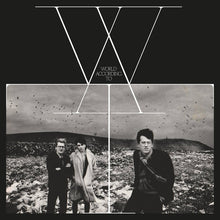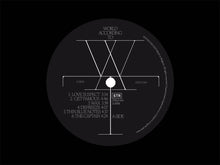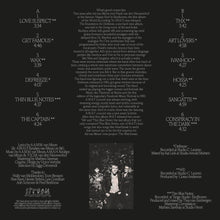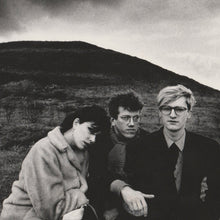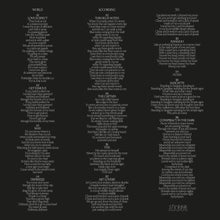
Stroom / Belgium / 2023
What’s good comes fast. Two years after Ad van Meurs met Frank van den Nieuwenhof in the famous ‘Happy End’ in Eindhoven, the first album of the World According To (W.A.T) was released.
The foundation for Defreeze, a six-track mini album, was laid in the living room of Ad and Ankie Keultjes, where Ad’s guitar riffs and screaming lap steel guitar formed a wonderful amalgam with the delayed Boss Dr. Rhythm and the arpeggios of the analogue Pro One synthesizer that was programmed by Ankie, who took care of most of the vocal parts. Frank’s melodic, bouncy bass lines bound it all together. Ad’s lyrics varied from abstract language puzzles like Ivanhoe and Vive la Vie to personal musings like Wax and Sangatte, which is actually a waltz. There were intense rehearsals where the band often lost track of time, creating a whole new repertoire somewhere between dance music and anarchistic punk wave. The more the groove repeated, the more you felt it. But in that groove melodies sometimes three-part choruses remained. The band was figuring out a style that didn’t exist at the time. Defreeze, released in 1983, got great reviews because of its original and innovating sound. The band ended up playing the bigger venues and festivals like Music des Traverses at Reims and the first edition of the legendary Pandora’s Music Festival in 1983. A W.A.T concert was always exciting, with steaming energy, sturdy beats and synths, screaming guitars and outspoken lyrics, but vulnerable at the same time. And of course, there was the dancing. A W.A.T. concert was a rave avant la lettre.
After their first album W.A.T released two more: ‘We’ and ‘Thin Blue Notes’ the last album that not only contained Thin Blue Notes, one of W.A.T’s best songs, but also songs like Heartbreak to weld that turned out to be the first impetus for Ad van Meurs’ new project: The Watchman.
The foundation for Defreeze, a six-track mini album, was laid in the living room of Ad and Ankie Keultjes, where Ad’s guitar riffs and screaming lap steel guitar formed a wonderful amalgam with the delayed Boss Dr. Rhythm and the arpeggios of the analogue Pro One synthesizer that was programmed by Ankie, who took care of most of the vocal parts. Frank’s melodic, bouncy bass lines bound it all together. Ad’s lyrics varied from abstract language puzzles like Ivanhoe and Vive la Vie to personal musings like Wax and Sangatte, which is actually a waltz. There were intense rehearsals where the band often lost track of time, creating a whole new repertoire somewhere between dance music and anarchistic punk wave. The more the groove repeated, the more you felt it. But in that groove melodies sometimes three-part choruses remained. The band was figuring out a style that didn’t exist at the time. Defreeze, released in 1983, got great reviews because of its original and innovating sound. The band ended up playing the bigger venues and festivals like Music des Traverses at Reims and the first edition of the legendary Pandora’s Music Festival in 1983. A W.A.T concert was always exciting, with steaming energy, sturdy beats and synths, screaming guitars and outspoken lyrics, but vulnerable at the same time. And of course, there was the dancing. A W.A.T. concert was a rave avant la lettre.
After their first album W.A.T released two more: ‘We’ and ‘Thin Blue Notes’ the last album that not only contained Thin Blue Notes, one of W.A.T’s best songs, but also songs like Heartbreak to weld that turned out to be the first impetus for Ad van Meurs’ new project: The Watchman.





